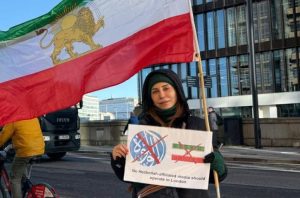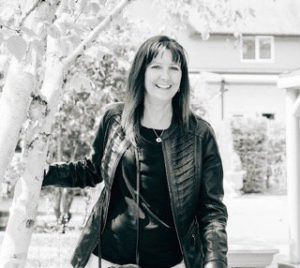ActionSA pushes for constitutional change as Operation Dudula targets migrants at clinics

ActionSA has reiterated its calls to amend section 27 of the Constitution to curb access to public healthcare for undocumented foreign nationals, amid Operation Dudula’s crackdown at public clinics which human rights watchdogs have criticised for constitutional violations.
ActionSA parliamentary chief whip Lerato Ngobeni said the party had tabled constitutional amendment proposals in May, arguing that the public health system was “buckling” under the pressure of providing free care to non-citizens.
Ngobeni claimed that some clinics reported that up to 70% of patients seeking services were foreign nationals and this had led to South Africans being “crowded out” of already overstretched facilities.
“South Africa is expected to carry this burden indefinitely, when other countries do not even allow entry without proof of medical insurance,” she said in a recent statement.
The SAHRC said blocking people from receiving healthcare services is unconstitutional. Referencing section 27(1) of the Constitution, the commission reaffirmed that “everyone has the right to have access to healthcare services”, and noted that section 27(3) guarantees that “no one may be refused emergency medical treatment”.
The commission voiced alarm about reports of intimidation by Operation Dudula at health facilities in Hillbrow and Rosettenville in Johannesburg. They demanded documentation at clinic entrances and turned away people without documents. In some cases, they inspected patient clinic cards and threatened hospital staff.
“The commission would like to remind members of the public and civic groups that access to healthcare is central to the right to dignity, the right to life, and the right to equality. The denial of healthcare on discriminatory grounds undermines the constitutional promise of a just, inclusive and caring society,” the SAHRC said.
It cautioned citizens against taking the law into their own hands and making it difficult for people to get medical care because of their nationality. “It is important to note that no civic group or individual has the legal authority to control access to public health facilities or to enforce immigration laws.”
The power to inspect, arrest or detain undocumented people lies solely with the department of home affairs, supported by the South African Police Service when lawfully required, the commission said.
Operation Dudula, now a registered political party, has said its actions are “community interventions”. National organiser Zandile Dabula told public broadcaster SABC last week that migrants should only receive emergency care “after they are arrested for violating immigration laws”.
In an interview with the Mail & Guardian, she denied that Operation Dudula’s actions at public clinics amounted to xenophobia, saying they were necessary because of government inaction.
Legal experts have said such actions could constitute violations of the Constitution and the National Health Act, which does not permit discrimination based on nationality or legal status.
International human rights frameworks, including the United Nations Refugee Convention and the African Charter on Human and Peoples’ Rights, also obligate South Africa to provide basic healthcare to all people in its borders.
Pierre de Vos, a constitutional law expert at the University of Cape Town, has previously argued that section 27’s language is unambiguous and applies to all people, not just citizens.
He said that amending this section would require a two-thirds majority in the National Assembly and approval from at least six provinces in the National Council of Provinces.
In Gauteng and KwaZulu-Natal, nurses and doctors have raised concerns about staff shortages, long queues and under-resourced clinics.
The department of health has not endorsed ActionSA’s stance, but it has acknowledged systemic pressure driven by increased demand, insufficient infrastructure and budget constraints. It says undocumented migrants can get primary care services, with more restricted access to specialised care.
Civil society organisations, including Kopanang Africa Against Xenophobia and Section27, have called for urgent intervention to halt Operation Dudula-led disruptions at clinics. Legal proceedings have been launched in the Johannesburg high court seeking interdicts against the party’s actions, with judgments expected later this year.
As the 2026 local government elections draw near, ActionSA is expected to campaign on a platform that includes stricter immigration enforcement and constitutional reform.
The party argues that South Africa must “rebalance” its humanitarian commitments with resource constraints, but critics warn that such rhetoric risks fuelling xenophobic violence.



